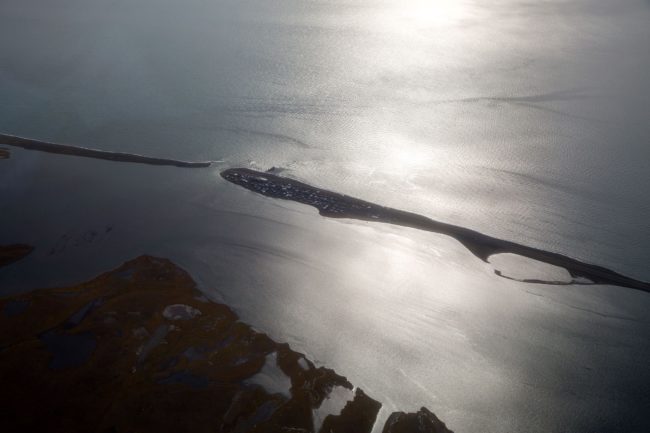
By the end of the century, researchers predict climate change could displace millions of people across the country, as rising sea levels and erosion hit coastal communities. As policymakers start to grapple with that reality, there’s a specific phrase making the rounds: “managed retreat.” In other words, relocating whole neighborhoods or communities and retreating from the coast.
A new study looks at examples around the world — including some in Alaska.
The Netherlands is famous for its ability to make land from water. The country has a mind-boggling system of pumps and levees that drain and protect coastal areas. But in recent years, the country has been lowering some of those levees, allowing some communities to flood.
“The purpose of that was, by absorbing all of that water upstream, there are larger towns downstream that would be much safer in the case of these high river flows,” said Miyuki Hino, a researcher at Stanford University.
It’s one of 27 examples her team looked at around the world. In each case, people have moved, or tried to move, because of environmental changes. They range from the decision not to rebuild in areas hit by the 2004 tsunami in Sri Lanka to abandoning sinking land in Louisiana to eroding coastal villages in Alaska.
One of the most successful examples is the Dutch program. It’s called “Room for the River” and it’s about stepping back and retreating from flood zones.
Hino said her team found two important factors in every example they studied.
Number one: does the community in question want to move?
Number two: “Whether broader society, beyond the residents, really benefited from retreat taking place,” Hino said.
In other words, the move was most likely to happen — and most likely to satisfy most of the people involved — when the community itself wanted to move, and the broader government agreed. And that was most likely to happen when there were clear benefits to people outside the directly affected community, situations like the Dutch example.
But in Alaska, Hino said, that’s been a challenge.
Villages like Newtok, Shishmaref and Kivalina have been trying to move for years. But neither the state, nor Congress, nor federal agencies have mustered the funding to help them. In situations like those, “there’s a perception that broader society does not significantly benefit from retreat taking place,” Hino said. “And as a result, it’s a major struggle to get the necessary government support to do so.”
But Robin Bronen, of the Alaska Institute for Justice, argued that interpretation isn’t quite right. Bronen has studied efforts to relocate coastal villages in Alaska for the last decade.
“In the paper, they talk about that scenario as a lack of political will, which is not what I would say,” Bronen said.
The problem in Alaska hasn’t been a lack of political will, she argued: state and federal agencies have been trying to help villages move.
Instead, she said, the problem is that the U.S. simply doesn’t have the right laws.
“There’s this urgent need to protect populations from climate change, but we don’t have the laws in place to facilitate it,” Bronen said. “[That] means that government agencies don’t have mandates or funding to make it possible to actually implement what everybody agrees is the best long term adaptation strategy.”
For instance, U.S. disaster laws will pay to help individual families move after a major hurricane — but they can’t help a whole community relocate in the face of slow-moving erosion or sea level rise. That was proved most recently this winter, when the village of Newtok requested a presidential disaster declaration, and was turned down.
But Bronen and Hino agree on one thing: “It seems very likely that people will be on the move in a changing climate,” Hino said. “The question is how.”
